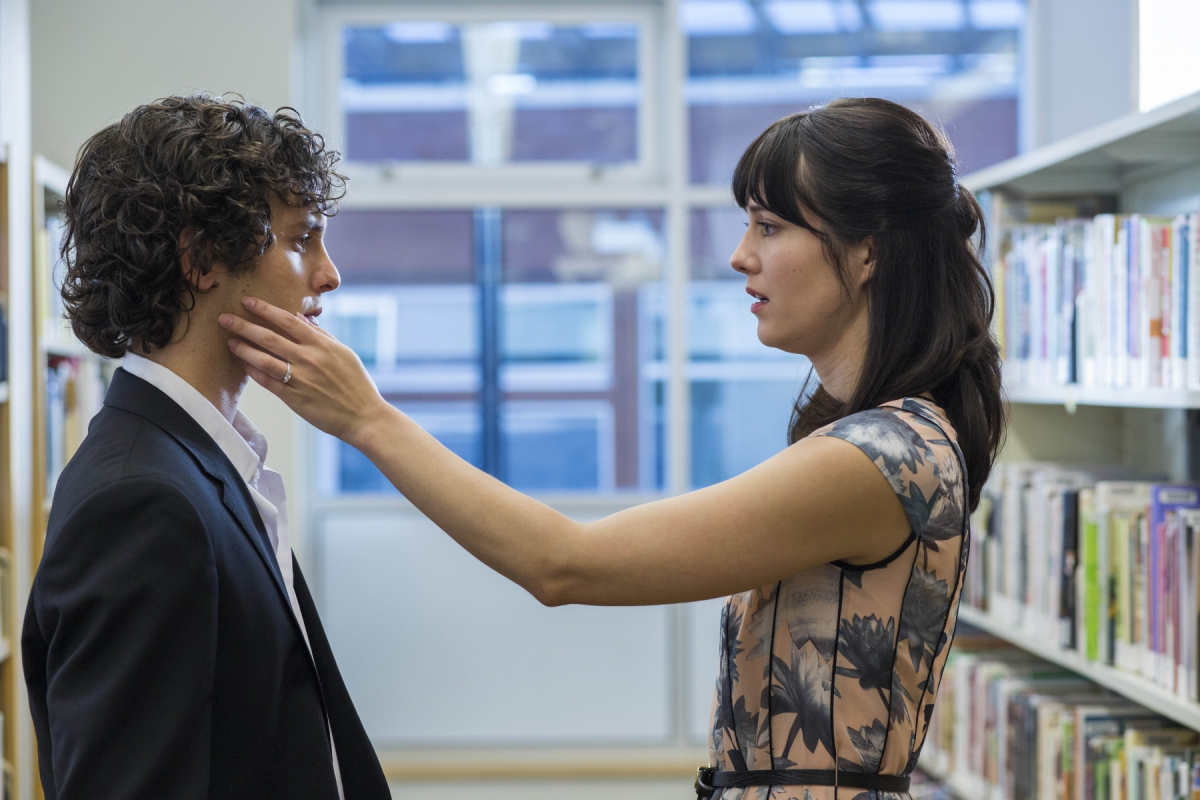Mary Elizabeth Winstead has been in the public eye since she was a teen, appearing everywhere from Wolf Lake to Scott Pilgrim, and has been on the rise ever since – but 2015 has been an especially good year for her, showing the wide range she truly possesses. On TV, she stars as Rowan in the new A&E series The Returned as a woman back from the dead, while on the big screen she’s starring in two indie films: the black comedy Faults, playing a member of a cult kidnapped for deprogramming; and as the title character in Alex of Venice.
Out this week, Winstead’s character in Alex of Venice is a working mother who finds herself re-evaluating her life after her husband (actor/director Chris Messina) abruptly leaves her. Winstead spoke with us about this unique coming-of-age movie, celebrating the bonds of sisterhood on screen, and the benefits of working in the indie film world.
Lesley Coffin (TMS): Watching the movie, one of the things that struck me was how real the sisterly relationship was between Alex and Lily [Katie Nehra]. Was that something you two worked on, to create that special relationship between your characters?
Mary Elizabeth Winstead: That aspect of the story was actually one of my favorite things about the film; the fact that you get to see this character in every facet of her life and the way each relationship is different. It was exciting as an actress to portray the way we are always a little different with everyone in our life. I am one of four girls in my family and know firsthand what it’s like to have sisters, and that it is very different when you are around your sisters than when you’re around anyone else. And the relationship on-screen between Katie and I happened pretty naturally. She has such a unique sense of humor, and we bonded quickly in a sisterly way, because we are the type of people who wouldn’t normally be friends if we weren’t brought together, because our personalities were so different. But once they put us in a room together we realized we loved being around each other, and that is very similar to what it’s like to be a sister. My older sister, for example in a neurologist, and I don’t hang out with many neurologists – but I have a lot of fun with my older sister. That is why that family bond is so special.
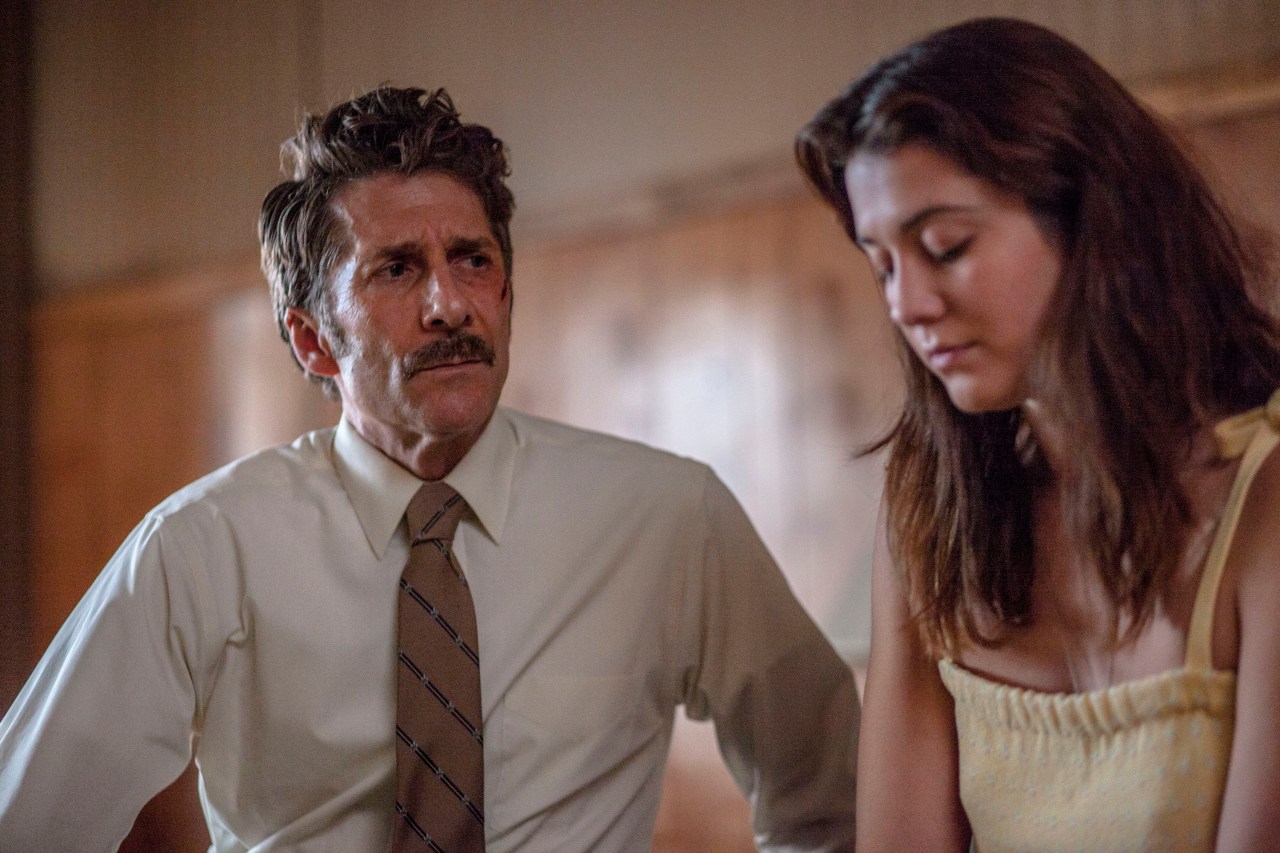
TMS: And you really get the sense of the older sister/younger sister dynamic you and Katie have right away from your initial interactions.
Winstead: Well, that’s how it is with family. The dynamics that were in place when you were five years old just come right back out when you’re together. And it’s fun to play as an actor that kind of regression back to childhood. Thinking about the early memories that made your character who she is.
TMS: With Katie and Chris, you were working with people who were also behind the camera [Katie Nehra co-wrote the film, Chris Messina directed]. I get the sense that working with them both on- and off-screen helped create that intimate, family feeling the movie has.
Winstead: It did. Because of them, I think the film felt especially collaborative. It felt like we were all just this team trying to make something. With Chris acting and directing and Katie acting and writing, they really brought me in as another collaborator, so by the time we were ready to shoot, they opened the whole thing up and just said, “All ideas are welcome.” We could rewrite scenes together and come up with new scenes, so the whole thing just felt like a team that wanted to make something good, and it didn’t feel like one person is in charge. Everyone came together and it was just such a lovely way to work.
TMS: Were there story elements you remember changing during production?
Winstead: There were a lot of changes. The story was changing and growing the entire time we were making it. The script was great from the start, and was certainly what brought me to the role; but there was this very organic process that caused it to change. Once all the actors were cast, they each brought such different shades to the characters, Chris really wanted the actors to make the characters their own. So we were all adding our own ideas and changing lines. And if you proposed a bad idea, Chris and Katie let you know, but the good ideas would always win out no matter who they came from.
TMS: The movie is a coming-of-age story for Alex, and one of the ways she kick-starts this new part of her life is the affair she has with Derek Luke’s character. Did you consider what sex meant to Alex before and after her marriage?
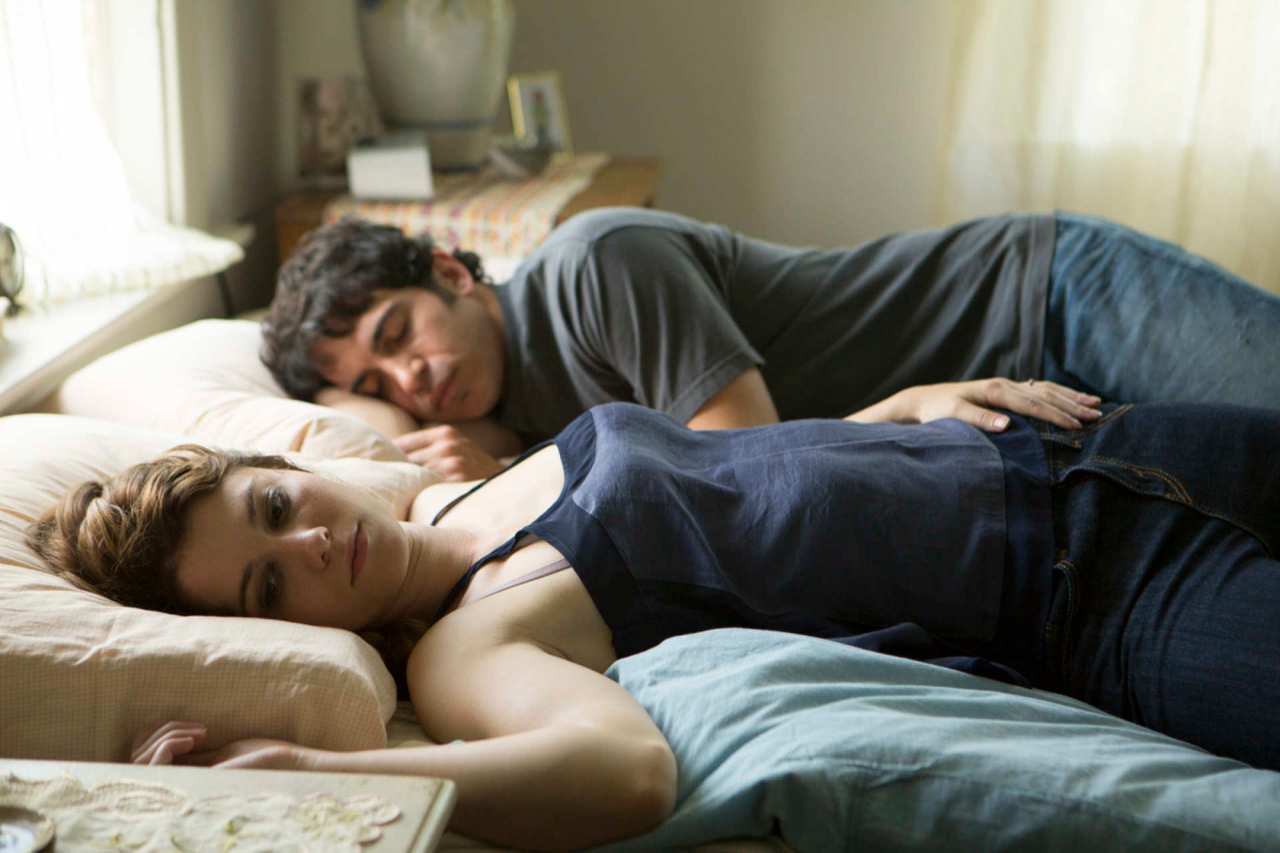
Winstead: Absolutely. She is one of these characters who had to grow up very, very quickly. She had life kind of thrust upon her at a young age. And in a lot of ways, I think she’s kind of stunted her development, emotionally and sexually. And Alex’s relationship with her husband George never had the chance to grow into a healthy, adult relationship. And that was something she had to figure out as a result of her husband leaving. I don’t think she realized how little she had grown since she was a teenager. And in that way, this really is the story of Alex becoming a woman, just later in life. That was what was so interesting, and is something I haven’t seen a lot of on the screen.
TMS: And what is especially interesting about that epiphany is that on the surface, she seems to have her whole life worked out when we first meet her. She has the job, the house, the husband, her son.
Winstead: She certainly thinks that. She thinks she has everything under control and she’s so tightly wound that she never takes the time to see that her life isn’t perfect or that there are a lot of things that are about to crack. And she’s forced to notice them and forced to cope with them for the first time, which is a very grown up thing to do, and something none of us want to learn. But at some point, you are going to be faced with the mistakes you made and see the repercussions of those mistakes, and learn to deal with them.
TMS: Alex seems to be actively trying not to be in touch with her emotions, almost as a coping mechanism for the stresses that surround her. Is it hard to play someone who is so shut off from her emotions and still find ways of being expressive in the character?
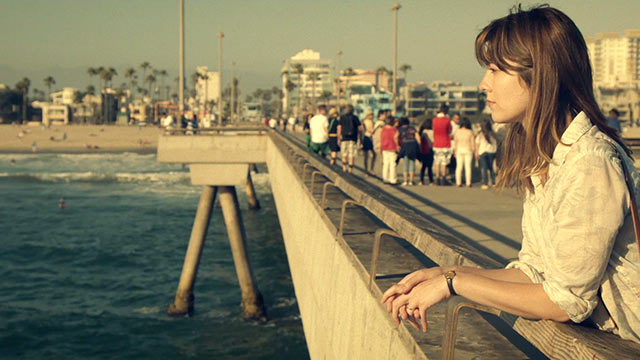
Winstead: It was probably the biggest challenge I had in getting into the mind of the character, because other than that, I feel like personality wise, we’re pretty similar and there is a lot of myself I was able to bring to her. But I am, or I like to think I am, a bit more of an open and relaxed person than she is. So I had to tap into that high stressed, type-A personality who isn’t willing to see the problems in her life because she’s too busy trying to make her life perfect. And I certainly know people like that who I could draw from for inspiration. And there are times in my own life when I’m that way. Times when I’m focusing on something so much that even if I know something else is going terribly wrong, I’m not going to acknowledge it because I’m terrified the other stuff will just fall apart. And that has been her mindset for years and years, so it takes a little bit to shake her out of that mold. But it was a great challenge to find the right balance.
TMS: You have great scenes with the little boy who plays your son [Skylar Gaertner]. Did you change your style of acting at all when working with him?
Winstead: I had so much fun working with him, and have worked with children a couple of times since, and it has become one of my favorite things in acting. I hadn’t gotten the chance to act with a lot of kids before this film, but it’s so much fun to get to play with a child actor and get different responses from them. And you can change what you’re doing when the camera is just on them to illicit a response that might not even be in the script, but in order to shape that performance there is so much you can do, and kids are so open. That’s what makes them great actors; the fact that you can play the scene one way, and they’ll react honestly to that, and then you can switch your performance around and they’ll react to that as well. So it was so much fun to get to make him laugh or cry and see him reacting in such open, honest ways each time. And now, I just want to act with kids all the time.
TMS: You started acting as a kid yourself. Did working with him remind you of what it was like first starting out?
Winstead: Yeah, I could definitely see myself in him a little bit in terms of what I wanted when I first started acting. He is a very serious little actor, in the best way, and wanted very much to be real and authentic. He wasn’t coming on set wanting to be a sassy child actor, he wanted to be very truthful. And that was what I liked about acting at his age. Just the fact that you can step into another world and have it feel so completely real. And I saw him enjoying that and really evolving in that aspect. And he was proud when he got to the place that his performance felt real.
TMS: Alex of Venice and Faults have you playing characters that couldn’t be further apart. I know your husband [Riley Stearns] directed Faults; what was it like going to work with him every day on set?
Winstead: It was interesting. I wondered what it would have been like to worked with him on a really big film or film for six months or something. Faults was an indie film and we only shot for nineteen days, so I really didn’t see him except when we were on set because he seemed to be working twenty-four hours a day. All we were doing was working on the movie and trying to make it as good a movie as we could, so it was a total blast. I want to be able to work with him again, because at least we were able to be together on set. Usually when I’m working it is really hard for us to find any time together. But I loved working with him, and we know one another so well, it made it all the easier for us to communicate on set. But I do wonder if it would be different if it were a longer shoot and one with a lot more downtime, what it would have been like to take our work home every night.
TMS: I know that earlier in your career you were in larger, studio films and ultimately took some time away to focus on smaller indie films. Are you still more drawn to those smaller films than the bigger budget, large productions made by studios?
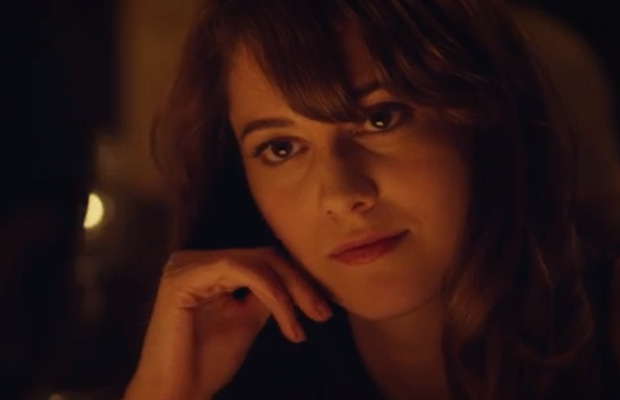
Winstead: I am. I’m in constant conflict about that because I want to do movies people see, but I also want to do movies that speak to me, and it’s very rare for those two things to combine; for a big movie to speak and resonate with me. I hope to get a chance to do more studio films in the future, but I also hope to do more TV and I’m open to doing theater too. I’m open to a lot of different things that will let me find projects that inspire me. I just have a really hard time doing projects that aren’t uplifting to me on a personal level, or inspire me to be a better actress. I seek those projects out and try to avoid projects that will make me miserable. And it’s not that the studio movies I did before made me miserable, but there are some where the entire time you’re there, you are thinking to yourself ,“What am I doing here?” And that isn’t good for anyone, because if you’re not enjoying it, then the audiences won’t be enjoying it either.
TMS: Was that realization and making that decision a big step for you in terms of having a voice as an actress in the industry?
Winstead: Absolutely. It’s been everything to me. I needed to do it for myself because I was at the point where I was making great films and working with great people, but I didn’t have any confidence in myself as an actor. And I wasn’t sure if I was capable of doing the kind of work I wanted to do. I needed to take time for myself and figure out what my potential as an actor really was, and push myself in some way to figure that out. And now I know that potential is there, and I just want to reach it. My only goal is to keep chasing that potential, whereas before I was always wondering if I had the potential.
Lesley Coffin is a New York transplant from the midwest. She is the New York-based writer/podcast editor for Filmoria and film contributor at The Interrobang. When not doing that, she’s writing books on classic Hollywood, including Lew Ayres: Hollywood’s Conscientious Objector and her new book Hitchcock’s Stars: Alfred Hitchcock and the Hollywood Studio System.
–Please make note of The Mary Sue’s general comment policy.–
Do you follow The Mary Sue on Twitter, Facebook, Tumblr, Pinterest, & Google +?



